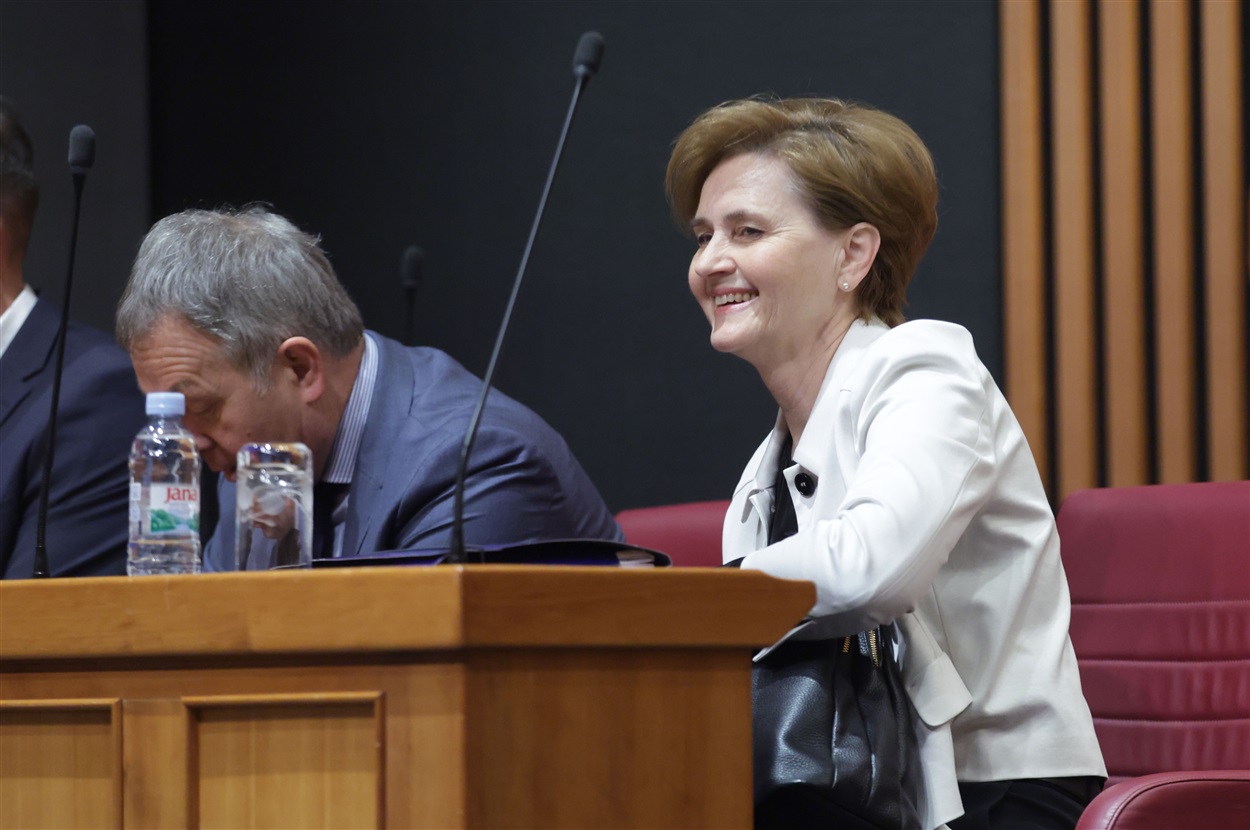
Zagreb - Croatian National Bank (HNB) Deputy Governor Sandra Švaljek, said on Thursday that inflation is an issue which is "mostly" behind us, but that other risks are emerging which could complicate life for citizens and entrepreneurs more than inflation.
Inflation is still a current issue, but new problems are emerging, with some risks that it could rise due to the geopolitical situation, the introduction of tariffs in the United States, and counter-moves from the EU to such tariffs, Švaljek said during a parliamentary debate on the Croatian National Bank's (HNB) reports regarding the financial situation, the level of price stability achievement, and the implementation of monetary policy in the second half of 2023 and the first half of 2024.
She made this statement in response to a question from HDZ MP Tomislav Šuta, asking whether, considering the challenges with inflation, we have taken all the measures we could.
Švaljek: HNB has done everything it could
"Certainly, the HNB has taken everything it could concerning tools at its disposal," said Švaljek, noting that the HNB, which now follows a joint policy with the European Central Bank, advocated for raising interest rates, which, she says, had positive effects.
She dismissed claims from some Opposition lawmakers that the main cause of inflation was the introduction of the euro as Croatia's currency.
"Analyses have shown that the contribution of introducing the euro to the increase in inflation was one-off, low, and in line with predictions, up to a maximum of 0.4 percentage points, on a one-off basis," she stated.
As local factors that could have contributed to inflation in Croatia being somewhat higher than in the euro area countries, she pointed out strong demand for services in sectors related to tourism, as well as somewhat higher wage growth in Croatia.
She added that inflation data should be viewed in the context of strong economic growth, which was 3.8% last year, and also a significant rise in average wages.
Net wages rose by almost 50%, prices cumulatively by 30%
From the beginning of 2021 to the end of 2024, net wages in Croatia have increased by almost 50% nominally, while prices during the same period have risen cumulatively by 30%, which is a difference of 20 percentage points, Švaljek highlighted. She also added that during the same period, the total number of employees had increased by more than 180,000.
“All of this has increased demand and put pressure on price growth,” she said.
She mentioned that inflation, as measured by the national consumer price index, was 3.7% in February this year, down from 4% in January.
Total inflation in Croatia, according to the international index, decreased to 4.8% in February, down from 5% in January, while core inflation, which excludes food and energy prices, fell to 4.5% from 4.7%, said the Deputy Governor.
She also emphasised that, when compared to similar countries, from June 2021, when inflation started to accelerate, until the end of 2024, the overall inflation rate in Croatia was lower than in all EU countries from Central and Eastern Europe, except for Slovenia.
All the countries in Central and Eastern Europe that have not adopted the euro had a higher cumulative inflation rate than Croatia during the same period, Švaljek said, noting that Croatia had around 28% cumulative inflation, while Hungary had 42%.
In other words, maintaining national currencies did not help these countries defend against inflation, she emphasised in response to the right-wing opposition.
Švaljek also mentioned the Croatian central bank's projections for further reduction in annual inflation, as measured by the national index, to 2.9% this year.
She expects, she said, a gradual slowdown in food prices throughout most of this year.
"The highest inflation in food prices is behind us," she stated.